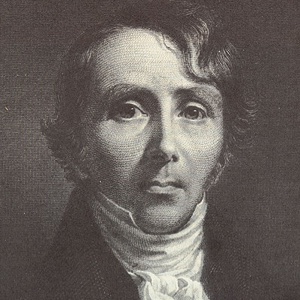
William Ellery Channing (1780 – 1842) was the foremost Unitarian preacher in the United States in the early nineteenth century and one of Unitarianism’s leading theologians. He was a grandson of William Ellery, a signer of the United States Declaration of Independence. Channing was known for his articulate and impassioned sermons and public speeches, and as a prominent thinker in the liberal theology of the day. His religion and thought were among the chief influences on the New England Transcendentalists, though he never officially subscribed to its views.

Quotes by William Ellery Channing…
The precious, the living, the effectual part… is that of which he sees the reasonableness and excellence; that which approves itself to his intelligence, his conscience, his heart; that which answers to deep wants in his own soul, and of which he has the witness in his own inward and outward experience.
To build up that strength of mind which apprehends and cleaves to great universal truths, is the highest intellectual culture.
I call that mind free which resists bondage of habit, which does not mechanically repeat itself and copy the past, which does not live on its old virtues, which does not enslave itself to precise rules, but which forgets what is behind, listens for new and higher monitions of conscience, and rejoices to pour itself forth in fresh and higher exertions.
I call that mind free which protects itself against the usurpations of society, which does not cower to human opinion, which feels itself accountable to a higher tribunal than man’s, which respects itself too much to be the slave or tool of the many or the few.
All that a man does outwardly is but the expression and completion of his inward thought. To work effectually, he must think clearly; to act nobly, he must think nobly. Intellectual force is a principal element of the soul’s life, and should be proposed by every man as the principal end of his being.
The only elevation of a human being consists in the exercise, growth, energy of the higher principles and powers of his soul. A bird may be shot upwards to the skies by a foreign force; but it rises, in the true sense of the word, only when it spreads its own wings and soars by its own living power.
I call that mind free which is not passively framed by outward circumstances, which is not swept away by the torrent of events, which is not the creature of accidental impulse, but which bends events to its own improvement, and acts from an inward spring, from immutable principles which is has deliberately espoused.
I call that mind free which jealously guards its intellectual rights and powers, which calls no man master, which does not content itself with a passive or hereditary faith, which opens itself to light whencesoever it may come, which receives new truth as an angel from heaven, which, whilst consulting others, inquires still more of the oracle within itself, and uses instructions from abroad not to supersede, but to quicken and exalt, its own energies.
I may be asked what I mean by “Inward Spiritual Freedom”… Spiritual freedom is the attribute of a mind in which reason and conscience have begun to act, and which is free through its own energy, through fidelity to the truth, through resistance to temptation… We are in the midst of influences which menace the intellect and heart; and to be free is to withstand and conquer these.
Cannot a strong interest turn difficulty into pleasure? Let the love of truth, of which I have spoken, be awakened, and obstacles in the way to it will whet, not discourage, the mind, and inspire a new delight into its acquisition.
